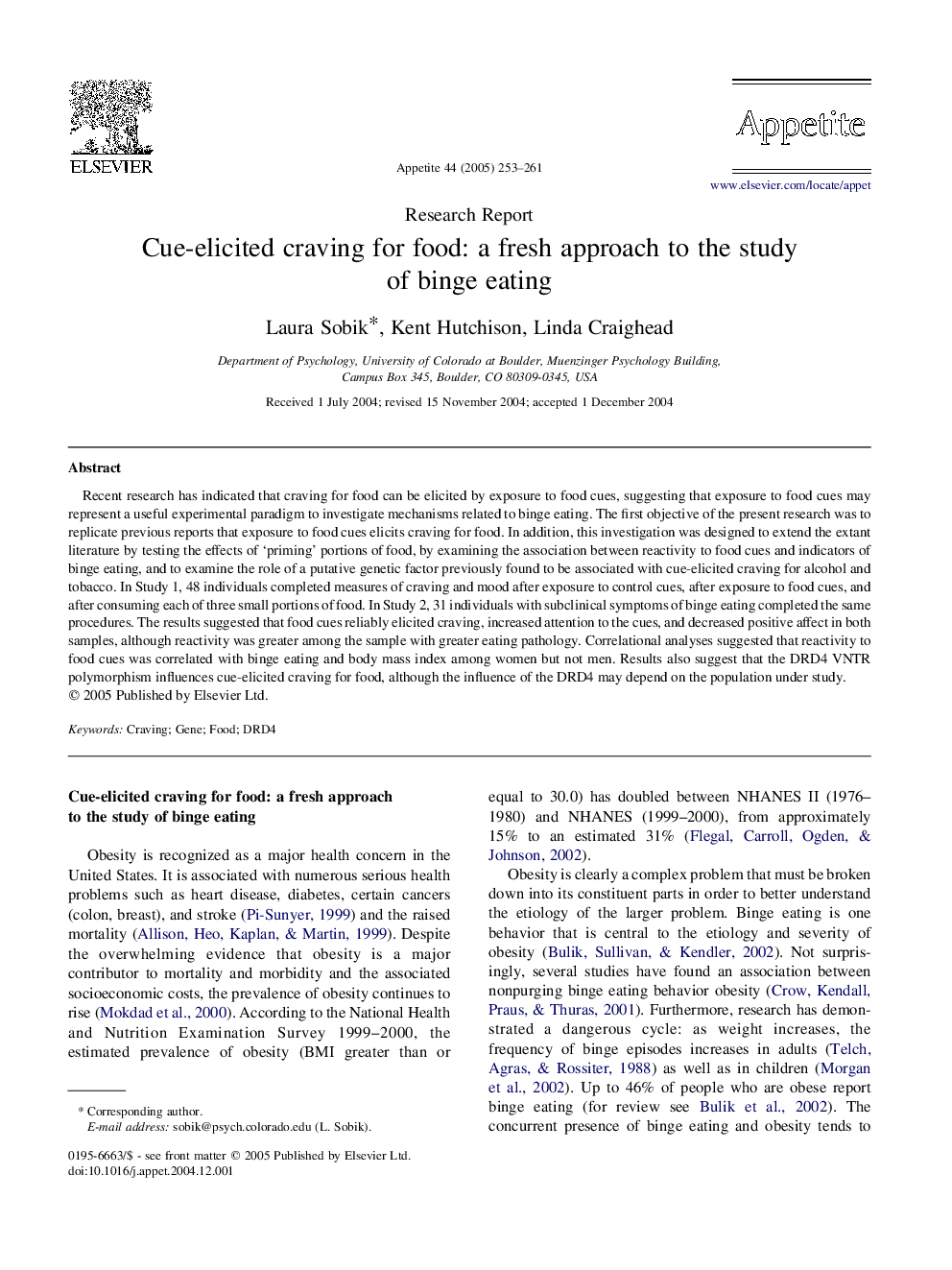| Article ID | Journal | Published Year | Pages | File Type |
|---|---|---|---|---|
| 10462740 | Appetite | 2005 | 9 Pages |
Abstract
Recent research has indicated that craving for food can be elicited by exposure to food cues, suggesting that exposure to food cues may represent a useful experimental paradigm to investigate mechanisms related to binge eating. The first objective of the present research was to replicate previous reports that exposure to food cues elicits craving for food. In addition, this investigation was designed to extend the extant literature by testing the effects of 'priming' portions of food, by examining the association between reactivity to food cues and indicators of binge eating, and to examine the role of a putative genetic factor previously found to be associated with cue-elicited craving for alcohol and tobacco. In Study 1, 48 individuals completed measures of craving and mood after exposure to control cues, after exposure to food cues, and after consuming each of three small portions of food. In Study 2, 31 individuals with subclinical symptoms of binge eating completed the same procedures. The results suggested that food cues reliably elicited craving, increased attention to the cues, and decreased positive affect in both samples, although reactivity was greater among the sample with greater eating pathology. Correlational analyses suggested that reactivity to food cues was correlated with binge eating and body mass index among women but not men. Results also suggest that the DRD4 VNTR polymorphism influences cue-elicited craving for food, although the influence of the DRD4 may depend on the population under study.
Related Topics
Life Sciences
Agricultural and Biological Sciences
Food Science
Authors
Laura Sobik, Kent Hutchison, Linda Craighead,
